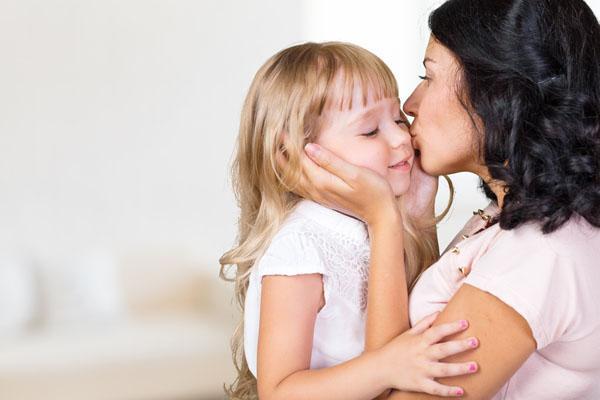** URGENT COVID-19 - WE'RE STILL OPEN *** Please click here for updates.
** COVID-19 - WE'RE STILL OPEN ***
Please click here for updates.
** URGENT COVID-19 - WE'RE STILL OPEN *** Please click here for updates.
** COVID-19 - WE'RE STILL OPEN ***
Please click here for updates.
January is the time to make resolutions for the New Year. But as anyone with a health club membership can tell you, most people give up these resolutions by mid-February.
When it comes to your children, however, it’s important to resolutions that last. Newly divorced parents can and should learn from the mistakes of others.
The resolutions below will help you avoid these mistakes and create situations that will help instead of hurt your children.
 Reassure your children early and often that your divorce is not their fault. Children will often blame themselves and think if only they were better behaved, more fun to be with, or got good grades, then surely their parents would want to be with them.
Reassure your children early and often that your divorce is not their fault. Children will often blame themselves and think if only they were better behaved, more fun to be with, or got good grades, then surely their parents would want to be with them.
Don’t lie to your children to try to make them feel better. The main reason kids blame themselves for their parent’s divorce is because they weren’t told the truth. Without gory details and in an age-appropriate manner, tell your children why you are divorcing.
Let the kids know there is a zero possibility of you and your ex getting back together. Most kids will initially go into a form of denial when their parents separate.
They often think that the situation is temporary and that their parents will get back together. Some kids still dream about their parents reuniting even several years later--which can cause problems down the road, especially if a parent remarries.
Be yourself. You can’t be both parents.
Divorcing parents often make unrealistic promises out of guilt. When a parent doesn't come through, kids blame themselves.
Don’t make promises you know you might not be able to keep. Consistently keeping your promises lets your child know that he or she can trust you and will help him or her adjust more easily to your divorce.
If you’ve made a promise and then later realize you can’t keep it, acknowledge it to your child. You may think he or she has forgotten about the promise, but most likely they haven’t.
Allow children time to grieve. Kids are unable to communicate grief in the same manner as adults. Therefore, they may be sad, angry, frustrated, or depressed, but cannot express it.
Encourage children to express their feelings about the divorce. Let them be honest about how they feel. Your children need to know that they'll be taken seriously and that their feelings are important.
Allow kids to express disappointment. Help them put their feelings into words. Be a good listener and observe their behavior, even if it's difficult.
Don't downplay your child's pain and sadness. While done with the best intentions, telling children things like "Don't worry, you’ll stop feeling sad," "It's better this way" and “Everything happens for a reason,” only conveys the message that you can't or don’t want to deal with your child's unhappiness.
Kids must be allowed to fully emote their feelings before you offer ways to make it better. Let them know that it's natural to feel sad.
Offer your support and comfort by letting your child know you understand and that their feelings matter to you. Ask what do you can do to help them feel better.
They may not know how to verbalize it, especially younger children, but you can provide some ideas. Something as simple as taking a walk, playing with a favorite toy or making a simple meal together can help relieve their stress.
Expressing themselves gives kids a sense of empowerment and will help ease any frustration.
When a major life change is going on, children need routine and consistency. The familiar helps provide comfort.
If at all possible don’t uproot your children or make too many unnecessary changes to schedules or such as moving to a new home, starting at a new school, etc. Minimize any disruptions to daily routines or changes to relationships.
If your child now shares time between two households, it is important to try to put differences with your spouse aside and maintain similar rules in both homes.
It might be tempting to relax or bend rules while your child is coping with the divorce, but in the long run, this can lead to more problems. Children may insist on testing limits and boundaries. Especially during times of stress but they still need routine, consistency, and structure.
One of the most painful things children suffer during divorce is that their relationship with their parents will inevitably change and be redefined. Let your children have as many parts of their lives as possible to be unchanged.
Your child is going through a difficult time. As are you.
Your close relatives and friends can make dependable role models and sounding boards for your children. Sometimes kids will be more comfortable talking about someone else about what they are going through.
Having devoted friends and family members will also take some of the pressure off the parents who are dealing with their own difficult emotions. Professionals should also be consulted. Give each child to talk to a therapist, social worker or school counselor.
Outsiders can help you keep an eye out for any problems or rough patches. Teachers, doctors, and friends may also notice signs that you may have missed.
Encourage your children to seek help or arrange for counseling if you see signs of serious stress or emotional fragility.
Your spouse may have been unfaithful. Your spouse may have gambled away your retirement savings.
Your spouse may have spent more time at work than at home. None of this means that you should resort to blaming, name-calling or belittling your ex in front of your children.
Respecting the fact that your child wants a relationship with both of their parents helps your child adapt to the divorce. Let the kids know you want them to have a good relationship with both parents.
Don’t criticize your spouse in front of the child. Remember that your spouse is still your child’s parent.
Be the bigger person. Don't resort to blaming or juvenile behavior in front of your kids, no matter what the reason may be.
Don’t express bitterness toward your ex or imply that they aren’t a good parent. This only makes your kids defensive, feels guilty and can potentially ruin their self-worth.
Kidshealth.com says to "Confine negativity and blame to private therapy sessions or conversations with friends outside the home away from the child."
Continue to support and foster your child’s relationship with the other parent in every way you can. This allows kids to be free of guilt and ambivalence.
Be sure to keep letters, e-mails, and text messages in a secret location, because kids will naturally be curious if there is a high-conflict situation occurring within the home. Keep visible conflict, heated discussions, and legal talk away from the kids.
Just because you’re divorced, doesn’t mean you necessarily get along with your ex, but don’t fight in front of your kids--period. Don’t argue or fight with your spouse while the child is listening.
Don't argue or discuss child support issues in front of your child. Heated conversations regarding unreliability or finances should take place on the phone when your kids aren't around. These types of conversations are not only upsetting but may make your child feel like they are forced to take sides.
Your children will often see your ex-spouse more than you do. They are probably more willing to communicate with your ex as well.
This is especially true in a divorce where there have been especially hurtful events, like infidelity. Because of this, you may easily fall into the trap of making your child take on roles that they aren’t mean to.
Don’t use your child as a messenger or go-between in parental communications, such as “Tell your father he’s late with the alimony payment.” or “Remind your mother she still has my golf clubs.” These messages should be communicated directly to a spouse by phone, text, email or through a legal professional or mediator.
Don't pump your child for information about the other parent or use them as a spy. This will put undue pressure on your child as well as make them be on edge when visiting.
Making a child assume this role may indicate that you are having trouble adjusting to the divorce and letting go of your ex. If they want to tell you about the time spent with their other parent listen closely and politely, and then stop.
If they don’t volunteer any information, try saying something like, “Have a good time? Good.”
Most importantly, don't use your child as a pawn to hurt the other parent. It’s not worth the cost of what it does to your child, as well as how it makes you look.
All of these roles make a child get in the middle of a conflict that doesn’t directly involve them. Not only is it not fair, but it can cause resentment and emotional issues later on. In some cases, these behaviors can negatively affect parenting agreements or cause legal issues.
A four-year-old, a teenager and a 26-year-old are all going to handle their parents getting divorced in different ways, but it is important to remember that they are still your children. Even if children are older when you divorce you should still not drag them into the middle of your divorce by confiding too many details or enlisting them as negotiators.
 Older and adult children may seem more capable of handling the end of their parents’ relationship. But that doesn’t mean they want or need to hear details about your dating life, fears, or all of your other emotional ups and downs.
Older and adult children may seem more capable of handling the end of their parents’ relationship. But that doesn’t mean they want or need to hear details about your dating life, fears, or all of your other emotional ups and downs.
No matter their age, it is unfair to use your kids as messengers or sounding boards. If you have issues that you have trouble discussing with your spouse, do so through your lawyer, mediator or another third party.
You should try to keep your interactions with your ex as civil as possible when you are interacting in front of your children.
Your children didn’t get divorced from their mother or father—you did. Allow your ex to see your kids. The children who do the best after a divorce are those who can have a strong relationship with both parents.
Work toward positive results. You shouldn’t withhold visitation unless a child is being neglected or in danger.
If you truly can't be civil when dropping off or picking up your child from the other parent, it might be best for your ex to collect your child from the neutral ground--at school, a local fast-food restaurant, or a friend’s house.
When your child does go off to be with the other parent, make it clear that you're happy they are spending time together. Say goodbye with a smile.
How you act after your child comes home is just as important. Make sure you are conveying the right “welcome home” message.
Parents are often unsure of what to say when their kids come home from an ex's house. They don't want to seem disinterested, but they don’t want to appear too inquisitive. It can be a delicate balance act, so to play it safe a parent may say nothing.
Unfortunately, this silence can send the wrong message to your child making. Silence can make him or her think you're unhappy, not comfortable, or disapprove of the time spent with the other parent. I
Silence can also make your child feel guilty or as if he or she has somehow betrayed you.
What’s the best way to handle their return? Act the same as you would if your kids came home from a weekend with grandma and grandpa. Allow your child to love the other parent and extended family by being supportive and interested.
Keep yourself healthy and don’t be embarrassed to ask for help. This is not the time to put on a brave face and go it alone.
Get help in dealing with your painful feelings about what has happened. Keeping yourself healthy--mentally and physically--is critical to starting over.
Talk to others who have gone through a divorce, find a support group. Read a self-help book. Ask your doctor or a trusted friend or relative to refer you to any other resources you could use at this time.
Showing that you are willing to get help sets a good example for your children in positive ways to adjust to major changes.
 You don’t have to hide the fact from your children that you are stressed out or that the divorce brings up difficult issues for you. You can talk about these feelings and issues in general ways without burdening your children and getting them caught up in details.
You don’t have to hide the fact from your children that you are stressed out or that the divorce brings up difficult issues for you. You can talk about these feelings and issues in general ways without burdening your children and getting them caught up in details.
Airing these feelings and encouraging children to also share their feelings may help them lose the negative emotions they may harbor about the divorce.
After a divorce, interacting with your spouse may be the very last thing you want to do, but your child needs you both.
You will often have to put your child’s needs ahead of your own. Work out arrangements for custody, discipline and other important issues with what works best for your child.
During this time, you may be tempted to jump into another relationship. But keep in mind that if you get into a relationship simply for the sake of filling a void, you are most likely setting yourself up to fail.
Rebounding after divorce because you fear alone often meaning that you are putting your own needs over those of your children. This can only cause you and your children issues in the future.
If you have already embarked on a new relationship, it will benefit from you putting your children first. Your children will often view your new love interest as a threat, not a welcome addition to the family. Kids are more likely to adapt to a new person if you make your children feel as though they are still the most important things to you.
Ending a relationship is a major change, which means you may end up forgetting or breaking these New Year’s resolutions. But don’t give up on them completely. Loss and hurt following a divorce can take time to heal. Be patient with yourself and your child.
DISCLAIMER:
Jack W. Carney-DeBord is licensed and admitted to the practice law in the State of Ohio-ONLY. Jack has no intention of soliciting clients in any state other than Ohio and nothing posted on this website should be viewed as an attempt to solicit or do business in ANY state other than the State of Ohio.
The content on this website is provided as general information only and is not legal advice. You should not act or refrain from acting based upon information provided on this site without first consulting legal counsel.
Use of this website does not create an attorney-client relationship between you and Jack's Law Office
Take the guesswork out of divorce fees. Click here to learn more.
Jack’s Law Office
305 S Sandusky St
Delaware, OH 43015
(740) 369-7567